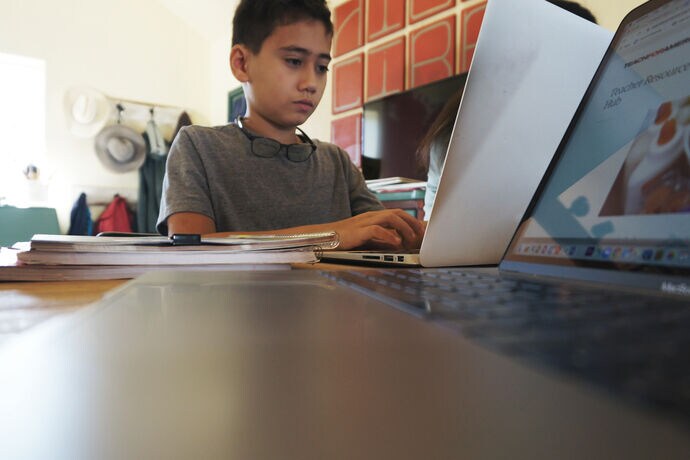Profiles in Resilence: Lost Learning, or 21st Century Skills?

In what has been the hardest year in recent memory, Teach For America Colorado's teachers are showing up stronger than ever to support our state's most underserved students. We're telling their stories — see below for Keith's and take a look at more Profiles in Resilience.
“I didn't sign up or dream about teaching through a screen. I signed up and was excited about being a teacher to hang out with kids. I haven't gotten to do that yet, but I will say I am really grateful.”
Even though he certainly experienced those infamous first year teacher nerves, Keith McBrayer (Colorado ‘20) says he was surprised that he actually felt better about his first year in the classroom after finishing his own college degree online. Because the transition to virtual learning was new for so many of his more veteran coworkers and students, it felt like everybody was learning together.
“On some level I'm really grateful that I didn't know any different. And it was my first year and I was learning anyway.”
Keith teaches seventh grade reading at College View Middle School in Denver, where 90% of students in Keith’s community are historically first-generation college students. This experience is deeply personal to Keith: his own grandparents immigrated from Mexico to Chicago before he was born, and his mother became the first in their family to graduate from college. Keith says that this made all the difference in his own ability to access higher education and ultimately graduate from college. Seeing his own experiences reflected in the lives of his students has reignited his passion for education.
“Thinking about so many equity issues in the US—how many of those come down to ‘Did your parents have a degree?’ The difference was education. That's what really motivated me to want to be a teacher.”
Building the Workforce of the Future
“I really hope it's not remembered as a year of lost learning, although I think you do have to admit and acknowledge that the equity gap is getting bigger the longer we're online,” Keith said.
In addition to the tech skills they honed, one of the biggest skills his students developed this year was self-advocacy. In the classroom, he says, it was easy for educators to notice which students need help. But online it was much harder to tell. Keith says his students are now more confident advocating for themselves and reaching out for help if they don’t understand something.
“I think it's pretty incredible, some of the self-advocacy and technological fluency skills they're picking up. I really think these students are going to come out some of the best employees the workforce has ever seen.”


